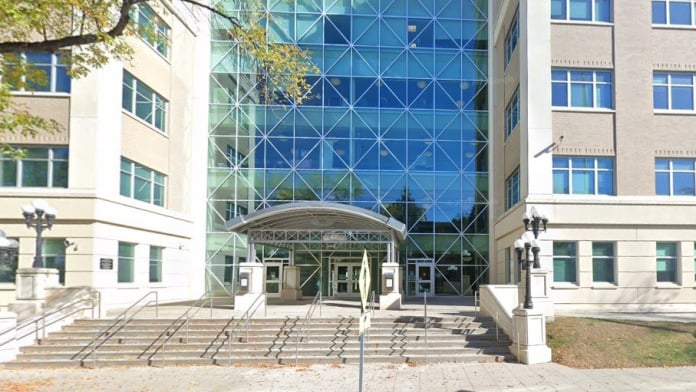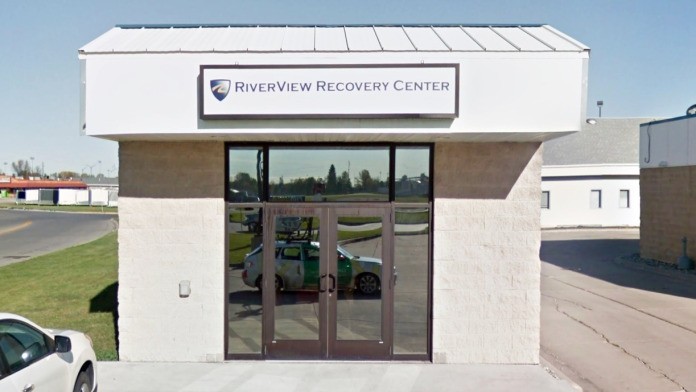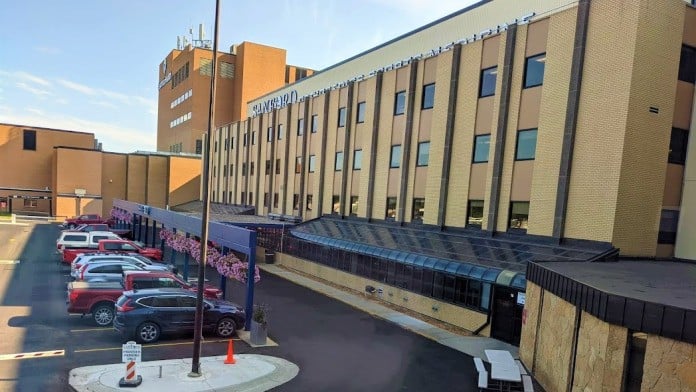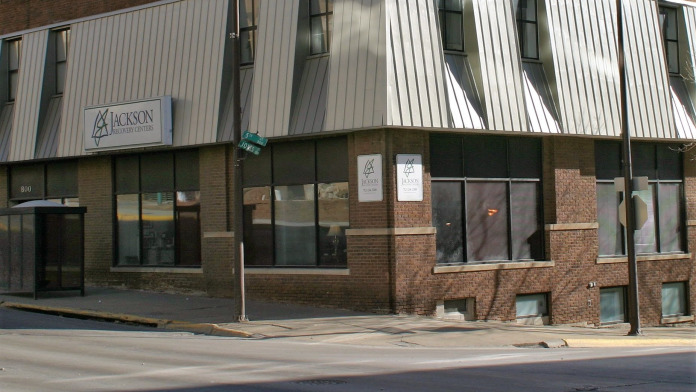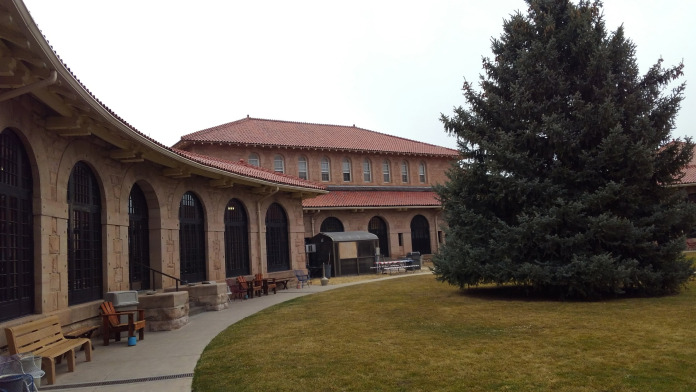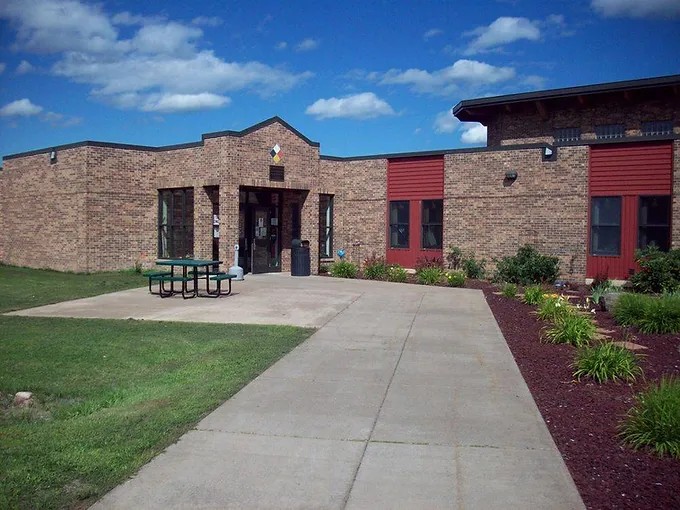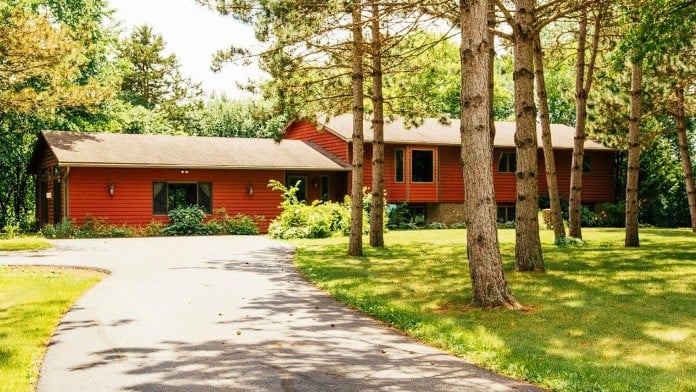Altru is a great place to begin your journey to recovery. They're very accepting and well trained to address all your needs.
About Altru Rehabilitation
Their Behavioral Health Clinic provides outpatient treatment and assessments for mental health and substance use. There is also an inpatient behavioral health unit that can provide short term intensive care. Altru’s staff can refer you to longer term inpatient treatment if needed.
One thing that stands out is that Altru is committed to treating and addressing substance use in young people as well. They have a therapeutic in school program for children and teens, offer play therapy for children and more.
They also have case managers that can help you coordinate your care and address non medical needs such as housing, food, education and employment. The case manager will help connect you to the appropriate community resources and can help you get back on your feet and living independently with the right treatment and support.
For opioid use disorder, Altru offers medication assisted treatment using suboxone. This reduces withdrawal symptoms while allowing you to stop taking unprescribed or street substances. Suboxone also reduces cravings to help you stay stable during treatment, which is an essential part of laying a solid framework for long term recovery.
Altru will also connect you to counseling where you can learn about the impact of opioids and connect to peer support groups, additional treatment programs and other helpful resources. They can also help you get support you need and create a recovery plan so you can break free from substance use disorder once and for all.
Latest Reviews
Rehab Score
Gallery
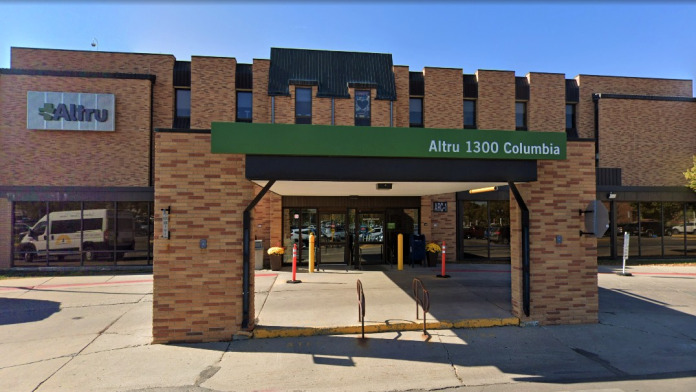
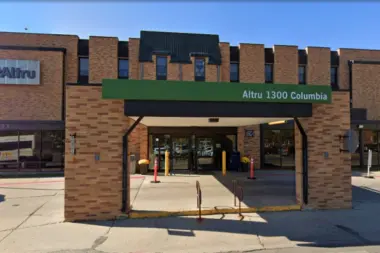
Accepted Insurance
Other Forms of Payment
Self-pay involves paying for treatment out of your own pocket. You can use savings or credit, get a personal loan, or receive help from family and friends to fund your treatment. If you don't have insurance or your insurance plan doesn't cover a specific program, self-pay can help ensure you still get the care you need.
Private insurance refers to any kind of healthcare coverage that isn't from the state or federal government. This includes individual and family plans offered by an employer or purchased from the Insurance Marketplace. Every plan will have different requirements and out of pocket costs so be sure to get the full details before you start treatment.
Medicaid is a state based program that helps lower-income individuals and families pay for healthcare. Medicaid covers addiction treatment so those enrolled can use their coverage to pay for rehab. When a program accepts Medicaid the client often pays very little or nothing out of their own pocket.
Medicare is a federal program that provides health insurance for those 65 and older. It also serves people under 65 with chronic and disabling health challenges. To use Medicare for addiction treatment you need to find a program that accepts Medicare and is in network with your plan. Out of pocket costs and preauthorization requirements vary, so always check with your provider.
Addiction Treatments
Levels of Care
Outpatient Programs (OP) are for those seeking mental rehab or drug rehab, but who also stay at home every night. The main difference between outpatient treatment (OP) and intensive outpatient treatment (IOP) lies in the amount of hours the patient spends at the facility. Most of the time an outpatient program is designed for someone who has completed an inpatient stay and is looking to continue their growth in recovery. Outpatient is not meant to be the starting point, it is commonly referred to as aftercare.
With a personal and responsive approach to mental health, the team in Altru’s inpatient psychiatry services works to understand your needs and provide the resources necessary for comprehensive evaluation and treatment. Inpatient services are located in Altru Hospital on fourth floor. Admissions are made with physician orders through clinic visits or Emergency Outpatient Department visits.
Completing a drug or alcohol rehab program shouldn't spell the end of substance abuse treatment. Aftercare involves making a sustainable plan for recovery, including ongoing support. This can include sober living arrangements like halfway houses, career counseling, and setting a patient up with community programs like Alcoholics Anonymous (AA) or Narcotics Anonymous (NA).
Treatments
Many of those suffering from addiction also suffer from mental or emotional illnesses like schizophrenia, bipolar disorder, depression, or anxiety disorders. Rehab and other substance abuse facilities treating those with a dual diagnosis or co-occurring disorder administer psychiatric treatment to address the person's mental health issue in addition to drug and alcohol rehabilitation.
Mental health rehabs focus on helping individuals recover from mental illnesses like bipolar disorder, clinical depression, anxiety disorders, schizophrenia, and more. Mental health professionals at these facilities are trained to understand and treat mental health issues, both in individual and group settings.
Programs
Adult rehab programs include therapies tailored to each client's specific needs, goals, and recovery progress. They are tailored to the specific challenges adult clients may face, including family and work pressures and commitments. From inpatient and residential treatment to various levels of outpatient services, there are many options available. Some facilities also help adults work through co-occurring conditions, like anxiety, that can accompany addiction.
Young adulthood can be an exciting, yet difficult, time of transition. Individuals in their late teens to mid-20s face unique stressors related to school, jobs, families, and social circles, which can lead to a rise in substance use. Rehab centers with dedicated young adult programs will include activities and amenities that cater to this age group, with an emphasis on specialized counseling, peer socialization, and ongoing aftercare.
Clinical Services
Animal therapy (aka pet therapy or animal-assisted therapy) can be very healing, as it allows patients to bond with animals, who give unconditional love. This is particularly useful for those who suffered trauma by the hands of people, who may be able to trust and form closer attachments to animals than humans at certain stages of rehabilitation.
Whether a marriage or other committed relationship, an intimate partnership is one of the most important aspects of a person’s life. Their experts help couples improve communication and manage conflict. They work with married or unmarried couples to address relationship issues including: divorce and separation, abuse, infidelity.
Creativity is inherently healing, and can help those in recovery express thoughts or feelings they might not otherwise be able to. Creative arts therapy can include music, poetry/writing, painting, sculpting, dance, theater, sandplay, and more. Unlike traditional art, the final product matters far less than the experience of creation and expression itself.
Eating disorders include anorexia, bulimia, binge eating, and dysfunctional eating patterns. Many psychologists and other mental health professionals consider eating disorders to be food addictions, meaning food is being used in an addictive way (similar to drug or alcohol addiction). Certain substance abuse treatment programs will have treatment for eating disorders as one of the services offered. An eating disorder may also present as a co-occuring disorder or dual diagnosis alongside drug and alcohol addiction.
Altru's Psychiatry Center works with families who are facing issues including, but not limited to: behavioral problems, coping issues in children, helping a family deal with separation and divorce, blended families or families with children with ADD or ADHD, domestic violence, helping recovering alcoholics reintegrate into the family system.
Group therapy has many advantages. Group members often develop a common bond and affirm one another’s feelings. Members no longer feel isolated; they feel supported by others who share similar experiences. Altru's Psychiatry Center offers several group therapy sessions.
In individual therapy, a patient meets one-on-one with a trained psychologist or counselor. Therapy is a pivotal part of effective substance abuse treatment, as it often covers root causes of addiction, including challenges faced by the patient in their social, family, and work/school life. Licensed clinical social workers offer individual therapy for patients as they experience a wide array of reasons affecting one’s ability to cope.
Through restorative treatment methods and adaptive techniques, the Occupational Therapy department at Altru provides the skills for the job of living to clients of all ages. Those skills--skills to dress, shop, work, drive, play or cope with disability--are all necessary and reflect the variety of our lives. They use restorative treatments, adaptive methods, the environment and assistive technology to reach the patient's goals.
Nicotine Replacement Therapy (NRT) is a way of getting nicotine into the bloodstream without smoking. It uses products that supply low doses of nicotine to help people stop smoking. The goal of therapy is to cut down on cravings for nicotine and ease the symptoms of nicotine withdrawal.
Proper nutrition is vital to your overall health and well-being. Altru’s registered dietitians provide nutrition advice and education to our patients, as well as offering a variety of options for individuals looking to make healthy choices. Registered dietitians have earned a bachelor’s degree, completed an accredited practice program, passed a national registration exam and complete continuing education to maintain their registration. Some have additional certification, such as Certified Diabetes Educator (CDE) or Board Certified Specialist in Sports Dietetics (CSSD).
Trauma therapy addresses traumatic incidents from a client's past that are likely affecting their present-day experience. Trauma is often one of the primary triggers and potential causes of addiction, and can stem from child sexual abuse, domestic violence, having a parent with a mental illness, losing one or both parents at a young age, teenage or adult sexual assault, or any number of other factors. The purpose of trauma therapy is to allow a patient to process trauma and move through and past it, with the help of trained and compassionate mental health professionals.
Amenities
-
Private Setting
-
Spa
Staff & Accreditations
Staff
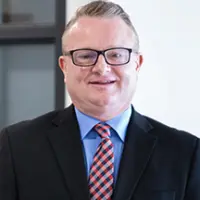
Todd Forkel
CEO
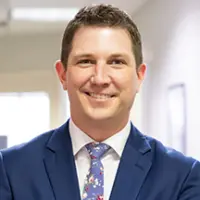
Dr. Josh Deere
President
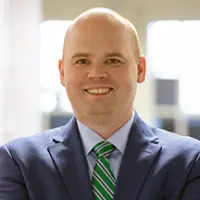
Derek Goebel
CFO
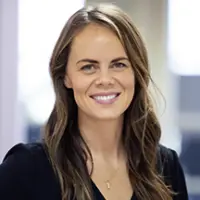
Meghan Compton
Chief Clinic Operations Officer
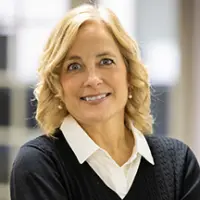
Kristi Hall-Jiran
Chief Partnership and Philanthropy Officer
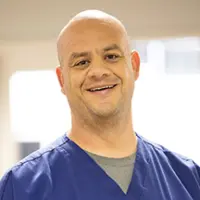
Cory Geffre
Executive VP of Hospital Operations and Chief Nursing Officer
Accreditations

The Commission on Accreditation of Rehabilitation Facilities (CARF) is a non-profit organization that specifically accredits rehab organizations. Founded in 1966, CARF's, mission is to help service providers like rehab facilities maintain high standards of care.
CARF Accreditation: Yes

The Joint Commission, formerly known as JCAHO, is a nonprofit organization that accredits rehab organizations and programs. Founded in 1951, the Joint Commision's mission is to improve the quality of patient care and demonstrating the quality of patient care.
Joint Commission Accreditation: Yes
Contact Information
860 South Columbia Road
Grand Forks, ND 58201
